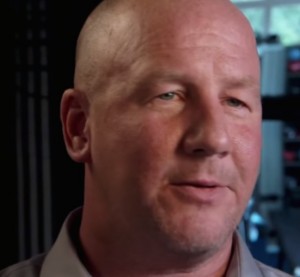
Imagine you’ve been a cop for years in a tough city. You harden yourself to the things you see and try not to bring them home at night. You do what you have to do, and it’s hard work, exhausting sometimes. As a detective, you spend more time observing bad actors, getting to know them, getting deeper into their lives; you work your way into those lives in order to understand why the behave the way they do, and that can be more disheartening. Sometimes you can’t leave the ugliness of it behind at the end of the day: the drugs, the violence and despair. Sometimes, the troubles you see during the day follow you home and haunt your dreams at night.
If you’re Jack Mook, you deal it by trying to make life better for some of those you encounter. First you start coaching at a boxing club for troubled poor kids: Steel City Boxing, in Pittsburgh. At 45, Mook looks the part, ex-Army paratrooper, a veteran of the Gulf war, rugged, with a little Telly Savalas in his visage, but his eyes are kinder. His students, his young fighters, call him Coach. One of his boxing students, along with his little brother, needed more than his coaching; they needed a rescue.
parents were AWOL, addicts who couldn’t care for themselves, let alone their children, and the guardian appointed for Jessee, 11, and Joshua, 15. They would show up at the boxing club and tell him they’d been sleeping on the floor. He worked with them for years until they stopped showing up, so he did what he does every day for a living: he investigated. When he found Joshua, he said, “He was exhausted, with bags under his eyes. He looked like a 40-year-old man who just lost his job.”
He realized that the boys had no future if he didn’t become their guardian himself when he heard that the relative caring for them had been arrested. As NBC’s Todayreported, following a segment on CBS Sunday Morning: “When he brought them home last year, they were filthy and flea-bitten, he said; they didn’t have beds to sleep in, and without toothbrushes, they had rotting teeth.” He brought them home and complete reordered his life around the two children. He’s never been married, and has always lived on his own, so he began to teach himself how to cook better meals, and he devoted his free time to establishing rules for homework and helping with chores like lawn mowing. He’s digging into textbooks along with them whenever he can: “I’m relearning prepositions and declarative statements. Sometimes I have no idea what they’re talking about.”
“I’ve worked the streets for 22 years, and without structure and discipline they’d be put in juvenile detention and probably jails later on,” he told Today. My main focus is that they’re going to be self-reliant and that they’re successful in life and able to make a living and take care of a family some day.”
The boys had grown to care for Mook, as their coach, and they were overjoyed to be taken under his wing. They began earning good grades and they each won a Golden Glove boxing title. Mook realized that he didn’t want to be their guardian: he had, in reality, become their father. So he made it official: the Pittsburg courts recently approved his adoption of the boys. When Judge Kathleen Mulligan signed the adoption order, applause and cheers broke out in the courtroom, according to thePittsburgh Tribune.
“It means everything,” Mook said after the hearing was over. “I got two kids off the streets. It’s awesome.”
It’s a measure of how suited Mook is to be their father when he says it’s the most stressful thing he’s ever done — and he fought in the Gulf War. That’s the sort of dedication to parenting that we need — not just from exceptional people like Mook, but from anyone who makes the solemn choice to bring children into the world.
“I’m very happy,” Jessee said. “His house is clean, he has great rules, and I know he’s going to make me a better man in life.” His brother said, “He gave us a childhood I know we’re going to grow up to be good now. He’s a savior.”
In this case, Jack Mook brought someone else’s troubles home with him, unable to quit caring, but for once he wasn’t simply brooding about things he couldn’t change. In this case, by bringing those troubled boys home, he made their troubles disappear.